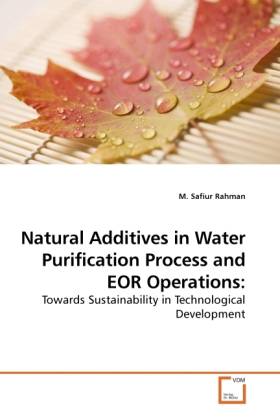
- Afhalen na 1 uur in een winkel met voorraad
- Gratis thuislevering in België vanaf € 30
- Ruim aanbod met 7 miljoen producten
- Afhalen na 1 uur in een winkel met voorraad
- Gratis thuislevering in België vanaf € 30
- Ruim aanbod met 7 miljoen producten
Zoeken
Natural Additives in Water Purification Process and EOR Operations
M Safiur Rahman
Paperback | Engels
€ 67,45
+ 134 punten
Omschrijving
The use of synthetic chemicals has created a numerous problems in the modern society. This book is a unique approach for the prospect of using natural additives for both water treatment process and petroleum operations. Heavy metal compounds and synthetic alkali are targeted in this book in order to remove and/or replace them with natural additives. For the removal of heavy metals (copper, cadmium and lead) from waste water, the potential of using maple wood sawdust as an adsorbent is successfully investigated. The Langmuir and the Freundlich adsorption isotherms model have been discussed thoroughly for different environmental parameters (i.e. temperature, pH, reaction time, each metal concentrate, adsorbent dose) to check the technical feasibility of maple wood sawdust as an noble adsorbent. On the other hand, maple wood ash is proposed for producing natural alkali that can offset the need of very high amount of synthetic alkali during enhanced oil recovery (EOR) operations. Eventually, the contents of the book discussed a series of experiments using environmental friendly natural additives on sustainable waste water treatment process and EOR operations in petroleum industry.
Specificaties
Betrokkenen
- Auteur(s):
- Uitgeverij:
Inhoud
- Aantal bladzijden:
- 180
- Taal:
- Engels
Eigenschappen
- Productcode (EAN):
- 9783639239508
- Verschijningsdatum:
- 25/03/2010
- Uitvoering:
- Paperback
- Formaat:
- Trade paperback (VS)
- Afmetingen:
- 152 mm x 229 mm
- Gewicht:
- 272 g

Alleen bij Standaard Boekhandel
+ 134 punten op je klantenkaart van Standaard Boekhandel
Beoordelingen
We publiceren alleen reviews die voldoen aan de voorwaarden voor reviews. Bekijk onze voorwaarden voor reviews.











